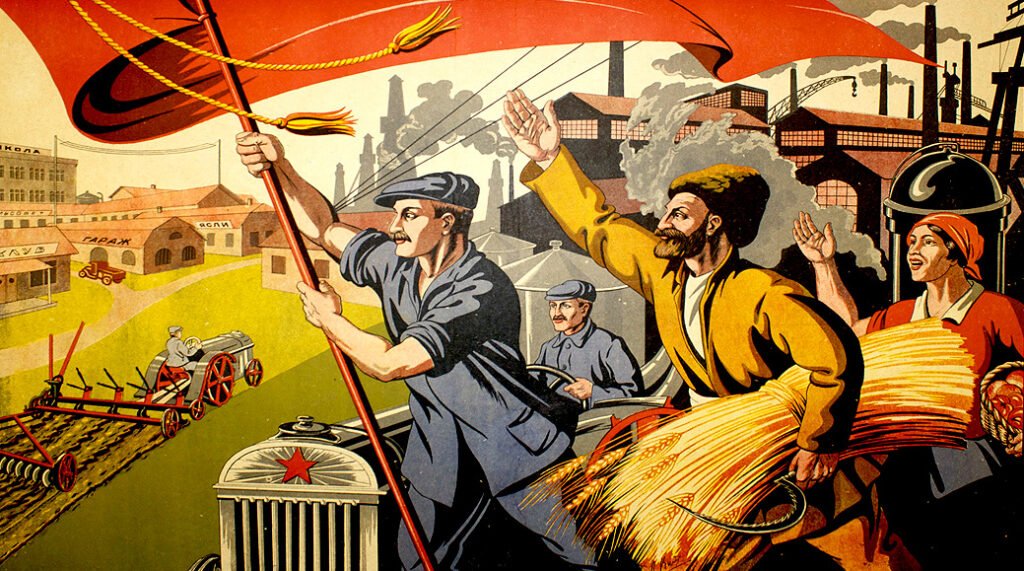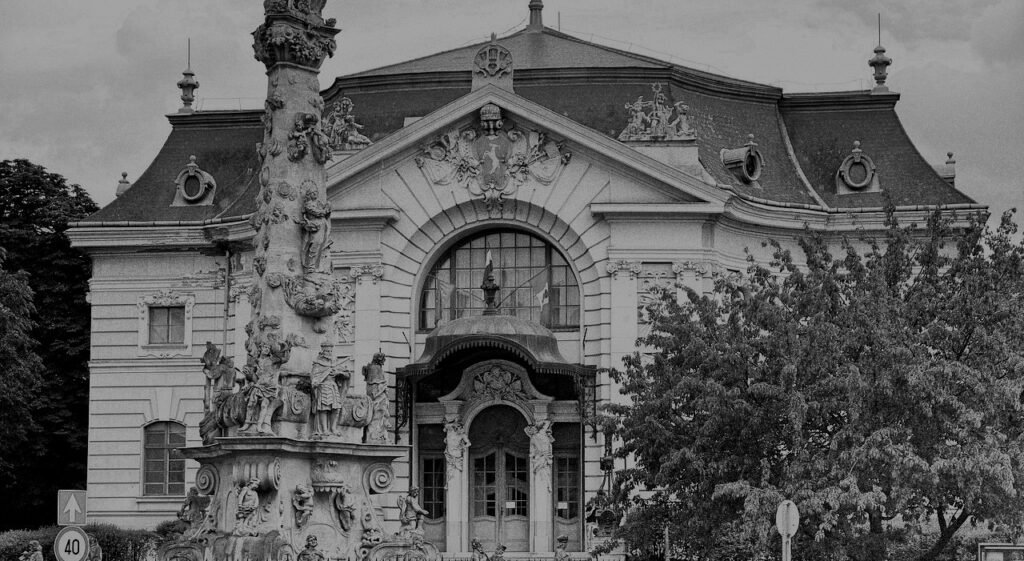
Recent visitors to the satellite capitals of Eastern Europe have ‘been surprised to find excited crowds Lining up to buy tickets for performances of non-Communist films, plays and musicals.
Communist officials, however, have their own reasons for permitting this seemingly paradoxical state of affairs. For one thing, satellite leaders apparently feel that the granting of minor entertainment concessions is a relatively harmless way of allowing the people an escape valve for their pent-up irritation and boredom.
Menioérs of the Communist ruling apparatus, despite their insistence that “all is calm and under control,” seem to realize that the boredom which appears to be an unavoidable accompaniment of the party’s dictatorship must be prevented from developing into more serious social unrest.
There is boredom with party jargon, boredom with the disparity between word and deed, boredom with the whole heritage of a Communist decade. The satellite regimes appear to be trying to counter this sense of irritation and isolation from the rest of the world partly by economic concessions and partly by a more liberal attitude toward popular entertainment.
Communist officials, however, are finding that a solution for their self-created problem is far from simple.
An impressive list of facts illustrate the dilemma of entertainment circles in the Communist states. Plays and films which receive official praise and recognition have proved to be flops, while films and theatrical products condemned for their “petty-bourgeois and decadent tendencies” have had popular runs. In Poland, out of a total of 3,400 motion picture theaters, only 96 have been profitable. In Hungary, 300 film theaters were on the verge of closing, until a 30 percent increase in the price of tickets and a system of government subsidies saved them, In Bulgaria, the biggest box-office successes have ‘been the locally produced “Legend of Love,” “Year of Love” and “On A Little Island.”
However, these very films were censured by the Party’s Central Committee for “undermining Communist ideology, distorting and wrongly representing the character of the people’s revolutionists.”
What, on the other hand, has been the fate of works rich in Communist ideology?

Some Hungarian provincial theaters which tried to conform with party guidance and filled their repertoires with Soviet productions and other straight propaganda plays finished their seasons in virtual bankruptcy. The National Theatre of Miskolc, largest provincial town in Hungary, played consistently before houses a quarter or half-filled during the last season. On one occasion only seven theater-goers turned up for a performance of “One Night” by Cerbatov. The Kecskemet Theater finished its season with a 50,000 dollar (one million forints) deficit. The National Theater of Gyor was given high official praise for its “excellent performances of Soviet and Czech plays.” But the box-office results were so appalling that the manager resigned in the middle of ‘the season. This theater went ‘bankrupt despite heavy subsidies.
Conversely, those theaters and playhouses in Hungary and Poland whose managers bowed to popular demand have played to full houses. In Poland, 19 modern “western” plays had successful 1958 runs. In Hungary the plays of Tennessee Williams, Thornton Wilder and John Osborne, as well as pre-war operettas and light musical comedies, are unrivaled as ‘box-office hits.
Party spokesmen have repeatedly scolded directors of cultural centers end theaters for saying “we go bankrupt with modern Socialist plays, for works with topical themes can be neither artistic, nor successful, so let’s turn back to bourgeois entertainment.” The University Playhouse in Budapest has tried both ways. A series of shows about revolutionary songs and poets were produced for swell audiences. The next program concentrated on popular folk songs and a recital of Burns’ poems. As the Hungarian newspaper Nepszabadsag remarked, the directors “avoided with painful cautiousness the modern Soviet and Hungarian Socialist works, assuming that in doing so they could avoid the empty houses.” While the party paper scoffed at the unpolitical schedule, the series drew capacity audiences.
Recently a special commission investigated the program of 42 cultural centers and 10 factory clubs in Hungary. It concluded that operettas, folk songs and bourgeois plays are preponderant. When asked why this is so, the managers replied unanimously: “This is what our people want. Coming from work, they want light entertainment. And we need the income in order to finance our other programs,” The same argument is valid in other satellite countries, such as Romania. Currently, a musical comedy has had a popular run in the Tanase Theater in Bucharest, although the director was accused by the party newspaper of having succumbed to bourgeois taste and ideology. Night clubs, such as the Lido, Ambassador and Continental in Bucharest have been reprimanded for playing decadent music – although to full houses.
In Romania and Hungary, regime authorities have started a massive campaign of persuasion and coercion to strengthen party guidance over a series of flourishing amateur theater ensembles. More then 4,000 Hungarian artists who tour in small groups, and are not affiliated with large theaters, are being screened by a special commission. Every single performance must be submitted to a Control Board 15 days before the scheduled showing. The cultural departments of the Municipal Councils also exercise control over songs and plays, In Romania, roving inspectors supervise the local ensembles. The manager and director of the Victoria Club in Cluj, for example, were discharged because they permitted presentation of a program “pervaded with petty bourgeois taste.” In general, professional or semi-professional theatrical groups in Hungary, Poland and to some extent in Romania prefer one-act plays or musicals which ere devoid of any propaganda and political angles. While heavily-subsidized regular theaters wrestle with chronic financial troubles, these ensembles, by meeting popular demand are immediately successful.
At the same time, however, satellite financial authorities demand box-office results from the theaters and movie houses, while regime cultural spokesmen seem determined to repress any tendencies toward artistic freedom. So the unhappy managers are forced to pay lip-service to the cause of “socialist realism” by advertising Soviet and other Communist plays and then filling their houses with school-children or workers bribed with free tickets. Simultaneously they try to balance their budgets by showing more “western” or non-political Hungarian plays.
“We must eliminate the gap between the wishes of the unsophisticated masses and the superior claims of Socialist culture,” the recently issued cultural directives of the Hungarian Communist Party warned. But “the clash between the needs of the box office and those of party doctrine remain as sharp as ever. Meanwhile, satellite theater managers and directors are constantly tormented by the problem of either reaping official praise and going bankrupt or making money and running the risk of being labeled ‘politically unreliable’…”
From the 1959 CIA report, “The Creative Artist in A Communist Society” (now in the public domain and free online). Paul Landy (born 1929-) is a former Budapest writer and editor who left Hungary after the country’s unsuccessful 1956 freedom uprising.
